Welcome back to This Week in Apps, the weekly TechCrunch series that recaps the latest in mobile OS news, mobile applications and the overall app economy.
The app industry continues to grow, with a record 218 billion downloads and $143 billion in global consumer spend in 2020. Consumers last year also spent 3.5 trillion minutes using apps on Android devices alone. And in the U.S., app usage surged ahead of the time spent watching live TV. Currently, the average American watches 3.7 hours of live TV per day, but now spends four hours per day on their mobile devices.
Apps aren’t just a way to pass idle hours — they’re also a big business. In 2019, mobile-first companies had a combined $544 billion valuation, 6.5x higher than those without a mobile focus. In 2020, investors poured $73 billion in capital into mobile companies — a figure that’s up 27% year-over-year.
This Week in Apps offers a way to keep up with this fast-moving industry in one place with the latest from the world of apps, including news, updates, startup fundings, mergers and acquisitions, and suggestions about new apps and games to try, too.
Do you want This Week in Apps in your inbox every Saturday? Sign up here: techcrunch.com/newsletters
Top Stories
Epic Games dares Apple to let Fortnite for iOS back in the App Store
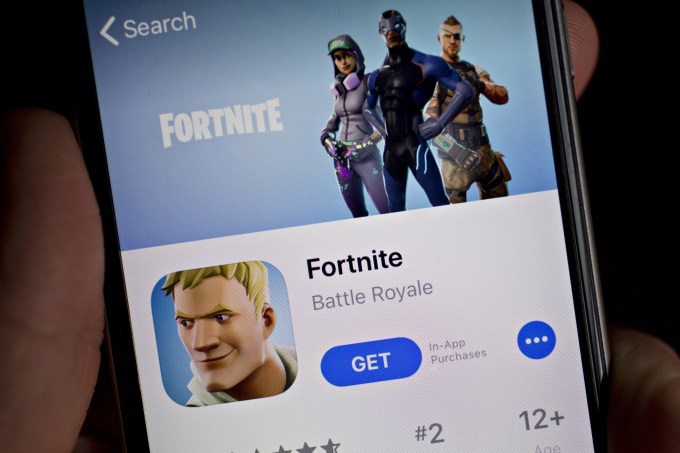
Image Credits: Andrew Harrer/Bloomberg via Getty Images
Following the judge’s ruling in the Epic-Apple antitrust lawsuit, Epic Games CEO Tim Sweeney asked Apple to reinstate Epic’s developer account. But as Epic said, it aims to appeal the court’s ruling, Apple informed the company that it won’t be reinstating Epic’s account until the appeals have been resolved. In effect, that means Fortnite may not return to iOS for years, if Epic is forced to wait for the appeal’s decision to be made final.
Sweeney made the request public by tweeting out a letter he sent to Apple making the request and the company’s response. The letter promises Apple that Fortnite would play by the rules — something that it didn’t do before, when it breached its contract with Apple by implementing its own payments to force the lawsuit. The letter also noted it had already disabled Epic payments server-side since it can’t update the app on users’ devices. And it said it paid Apple the $6 million in fees ordered by the court, which had been gained as a result of routing around Apple’s in-app purchases with its own system.
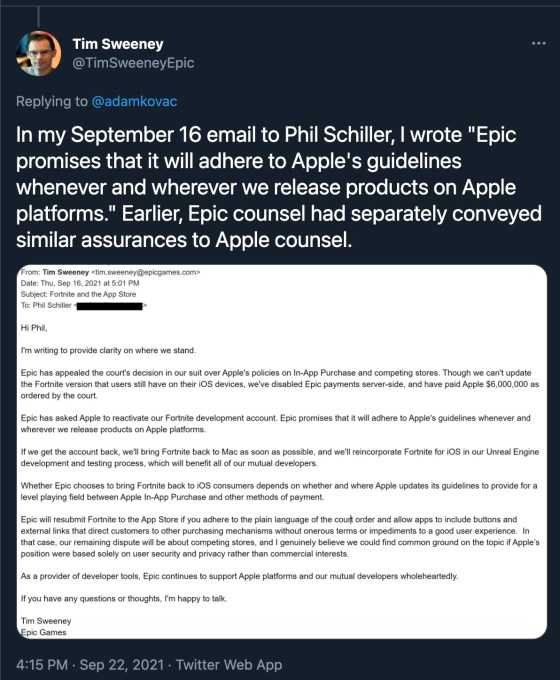
Image Credits: Tim Sweeney on Twitter (opens in a new window)
But what makes the letter interesting is that it’s not just Epic asking for re-entry. It’s daring Apple to follow the current court order.
The judge’s decision deemed Apple “not a monopoly,” which Apple then jubilantly celebrated, saying it’s something “we’ve known all along,” quoting the judge’s statement that Apple’s success was “not illegal.” However, the one part of the case where Epic won was where the judge declared Apple’s current in-app purchase (IAP) system anticompetitive. The court’s decision was that Apple would now have to accommodate developers by giving them the choice to include buttons or links to other places where users could pay for their in-app purchases outside the App Store, in addition to Apple’s IAP option.
Sweeney’s letter tells Apple Fortnite will play by the rules if Apple will. That is, if Apple follows the court’s guidelines to allow buttons and external links to other purchasing mechanisms, then Epic would resubmit the Fortnite app. In other words, Epic is ready to take advantage of the now legal option to route around Apple’s IAP system.
Apple, though, wasn’t having it. Apple’s legal team called Epic’s behavior in the past “duplicitous” when it breached its contract, and Apple saw no reason to reinstate the account until the court’s decision is made final. And of course, Sweeney tweeted that too, noting that appeals may take up to five years. (So bad news, Fortnite players.)
Apple’s decline may help to signal to other developers not to try to break its rules, but for Epic it sets the stage for the next battle — one where it’s not just daring Apple to let it back in based on the new terms, but one where it’s also daring Congress to act, too. After all, Epic’s position seems to be, if Apple can boot out a multibillion-dollar company that made amends for breaking rules it believed to be illegal, then what hope would smaller developers have to ever fight back against the tech giant? And once kicked out, there is no other path to iOS. This seems to try to position Apple as the monopolist that the court said it wasn’t — which is what the appeal is all about.
Apps to have a record Q3, with $34B in consumer spending
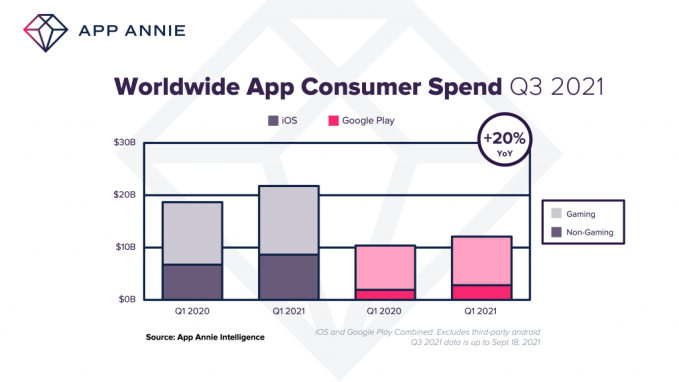
Image Credits: App Annie
A new forecast from (the recently busted) App Annie indicates the third quarter will be another good one for the app economy. Consumers worldwide will spend $34 billion on apps and games in Q3, a 20% year-over-year increase in spending. The jump indicates that the COVID-19 pandemic’s impact on consumer habits and behavior is having a lasting effect when it comes to how people are now using apps for entertainment, shopping, work and education. Consumer spending on iOS apps grew 15% year over year to $22 billion, and 15% year-over-year on Google Play, to reach around $12 billion. Most of this revenue is generated by gaming apps, which account for 66% of the spend across both app stores. In terms of non-gaming apps, iOS commands 76% of consumer spending
Downloads in Q3 will also grow by 10% year-over-year to reach a record high of 36 billion, driven by Google Play and particularly downloads in emerging markets like India and Brazil, and others.
Weekly News
Apple Updates & News
- Apple released the public versions of iOS 15, iPadOS 15 and watchOS 8. iOS 15 adds a number of new features, most notably Focus modes, which allow you to personalize your experience based on your current context (work, sleep, driving, etc.); a revamped (and sort of controversial) Safari update; improvements to Apple’s core apps; and more.
- Apple also released to developers iOS 15.1, beta 1. The new beta adds SharePlay, the co-viewing feature for FaceTime, which did not make it in time for the public release of iOS 15. It also allows users to store their vaccination records in the Health app by taking a photo. (Or, if your health provider syncs your medical records, it may be in there already.)
- But! New data from Mixpanel indicates users are taking longer to upgrade to iOS 15 compared with iOS 14 at launch. In its first two days, iOS 14 had been adopted by 14.5% of users, compared with 8.5% for iOS 15.
- Apple rolled out StoreKit 2 and new in-app purchase capabilities. StoreKit 2 adds new Swift-based APIs that allow developers to determine product entitlements and eligibility for offers, get a user’s history of in-app purchases, find out the latest status of a subscription, provide a way to request refunds and manage subscriptions from within an app, and more. An App Store Server API is also in production for getting users’ IAP history and subscription status. App Store server notifications, which provide real-time updates on IAPs to enable developers to create customized experiences, are coming soon.
- iOS 15 brings a major ASO update to the App Store. Now, the store will hide the screenshots for the apps you already have installed on your phone, which allows other apps and games to gain more visibility. This will be particularly important for those that appear in searches for major brands.
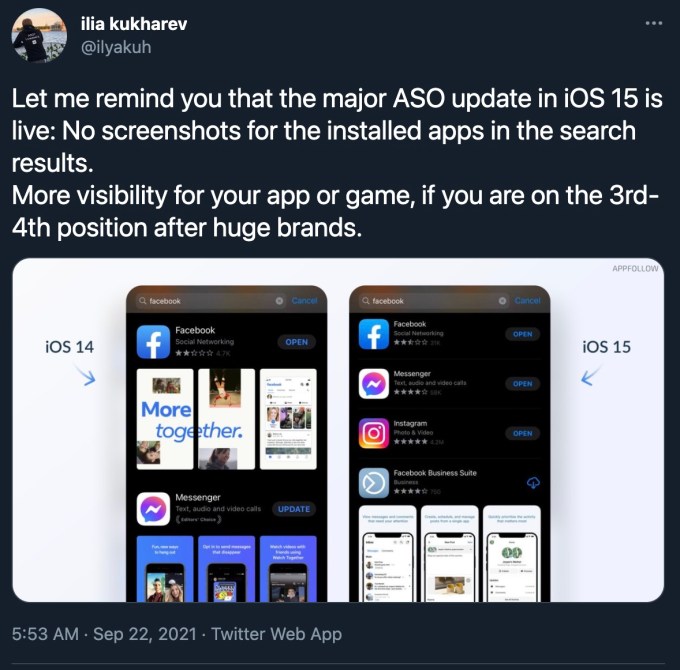
Image Credits: ilia kukharev on Twitter (opens in a new window)
Android Updates & News
- Google announced a bevy of new Android features, some of which were previously available to Pixel owners only. Users will be able to control their phone with facial gestures, control their Google TV with their phone, manage Reminders with Google Assistant, play games from GameSnacks in Android Auto, hide sensitive photos in a new “Locked Folder” in Google Photos and get “Heads Up” reminders to look up when walking and using their phone, among many other things. There’s a range of other accessibility features, in addition to facial gestures, as well.
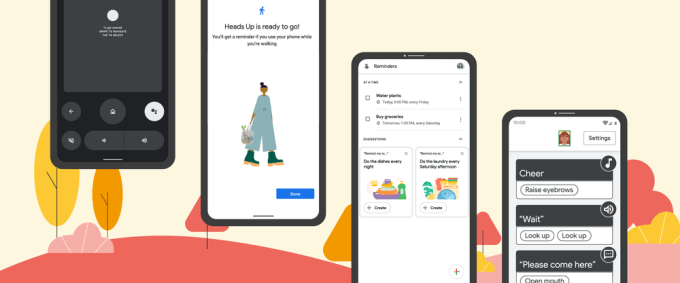
Image Credits: Google
- Google’s Android Automotive OS will come to Honda vehicles in 2022. The integrated version of Android Auto is already available in select Ford, GM and Volvo vehicles.
- Google booted a game and suspended a developer’s account for using sexually explicit ads to direct users to their app. The ads were causing outrage across social media, including Twitter and TikTok, due to the nature of the ads, which encouraged players to commit sexual assault.
E-commerce/Food Delivery
- Amazon is shutting down its Amazon Go app. The app allowed shoppers to go checkout-free at Amazon’s high-tech convenience stores where cameras and shelf sensors track what you buy. The functionality provided by Amazon Go is now being integrated into Amazon’s main app, the company said.
- Uber Eats added a new map feature that allows users to search for food nearby by typing in either words or an emoji. That is, you could type in an emoji of a hamburger
 , and the map would display the exact distance from your location. The company said the change was introduced because a majority of users would switch to other map apps to find nearby food. Users will also be able to see delivery and pickup options within Uber Eats and the Uber app itself.
, and the map would display the exact distance from your location. The company said the change was introduced because a majority of users would switch to other map apps to find nearby food. Users will also be able to see delivery and pickup options within Uber Eats and the Uber app itself.

Image Credits: Uber Eats
Fintech
- PayPal launched its new “super app,” which combines a variety of fintech tools under the hood. The app offers direct deposit with the ability to get paid up to two days early, improved bill pay, a digital wallet, peer-to-peer payments, messaging, shopping tools ported over from its acquisition of Honey, crypto capabilities and a “high-yield” savings account (well, it’s 0.40% APY) powered by Synchrony Bank. Some of the features are arriving now, others in the weeks and months ahead. And the rollout itself is staggered so you might not see the update right away, either.
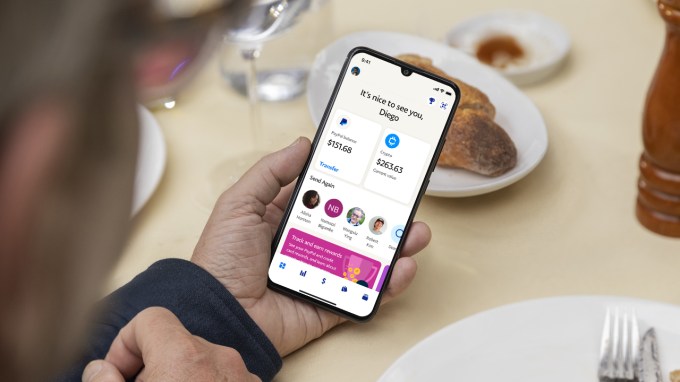
Image Credits: PayPal
- Following the threat of an SEC lawsuit, Coinbase canceled its planned launch of a “Lend” product which would have allowed users to lend their crypto holdings back to the exchange for the promise of earning interest rates that are much higher than traditional savings accounts offer. This sort of functionality is already offered by other platforms, like Gemini, which is why Coinbase was proceeding toward a launch before the SEC’s intervention.
- Robinhood has begun quietly testing a new crypto wallet feature and cryptocurrency transfer features in a beta version of its app.
- European fintech app Revolut launched commission-free stock trading in the U.S. to compete with Robinhood and others.
- Square’s payment processing app glitched last weekend, which caused its automatic tipping screen to disappear for hours. The bug hurt restaurant workers, baristas and small business owners who lost out on what would have otherwise been hundreds of thousands in tips.
- China banned crypto. The country’s central bank said all cryptocurrency-related activities are now prohibited and overseas exchanges providing services in China are now illegal.
Social
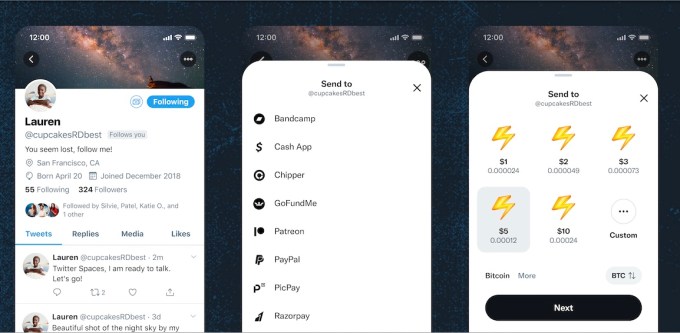
Image Credits: Twitter
- Twitter continued to accelerate its product releases with this week’s introduction of even more features, including those in the crypto space. The company added support for Bitcoin tipping in its recently launched “Tip Jar” feature, which allows users to receive one-time payments through third-party services. Now, users will be able to add a Bitcoin Lightning wallet (via Strike’s API) or their Bitcoin address to accept crypto tips. Twitter also plans to support NFT authentication so creators could connect their crypto wallets to Twitter to showcase their NFTs. And Twitter said it’s planning to roll out recording to Spaces, launch a creator fund and other safety features, among other things.
- Tumblr launched its subscription service Post+ into open beta in the U.S. The product has been controversial, as users worried about how it could impact the site’s culture. Some users were concerned it gave the appearance of something akin to Twitter’s verified badge, offering an elevated status. Tumblr has since responded to user feedback by removing the blue Post+ badge that appeared next to the names of users who enabled the feature.
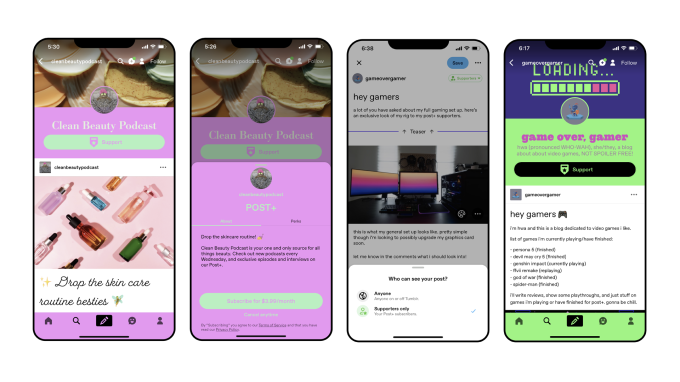
Image Credits: Tumblr
- Facebook’s stock tumbled after the company announced Apple’s privacy changes would have a bigger impact in Q3 and noted it had been underreporting iOS web conversions by approximately 15%. The latter had greatly panicked advertisers into thinking Apple’s ATT changes were even worse than feared. Investors didn’t respond well to the admission of the forecast, however, and the stock dropped several points after the announcement was made.
- Pinterest partnered with Albertsons to make recipe pins shoppable. The grocery chain is looking to drive recipe hunters from pins to checkout.
Photos
- Apple said it would add a new setting to its iPhone 13 that would allow users to turn off automatic camera switching to the macro camera when users get too close to their subject. There was already a setting that would disable the switching for video recording, which indicated that Apple knew that some people would prefer manual control over the switching.
Messaging
- Telegram added a host of new features, including interactive emoji that display full-screen when tapped, new chat themes and livestream recording in an effort to continue to better compete with Messenger, WhatsApp, iMessage and other messaging apps. The latter new addition could be particularly useful for creators, as admins will be able to record video and audio directly from a livestream or video chat. The recorded sessions are then stored in the Saved Messages section.

Image Credits: Telegram
- WhatsApp for iOS is working on a new iMessage-like group icon feature that will allow you to create a personalized icon for your group chat.
Streaming & Entertainment
- Apple’s Podcasts app in iOS 15 added personalized recommendations to its “Listen Now” tab, in an effort to improve podcast discovery. Sections titled “If you Like [Show Name]” will suggest other sows that listeners like you are engaging with, while other recommendations will be based on topics you like. A new Shared with You section in Listen Now will display recommendations from friends and family.
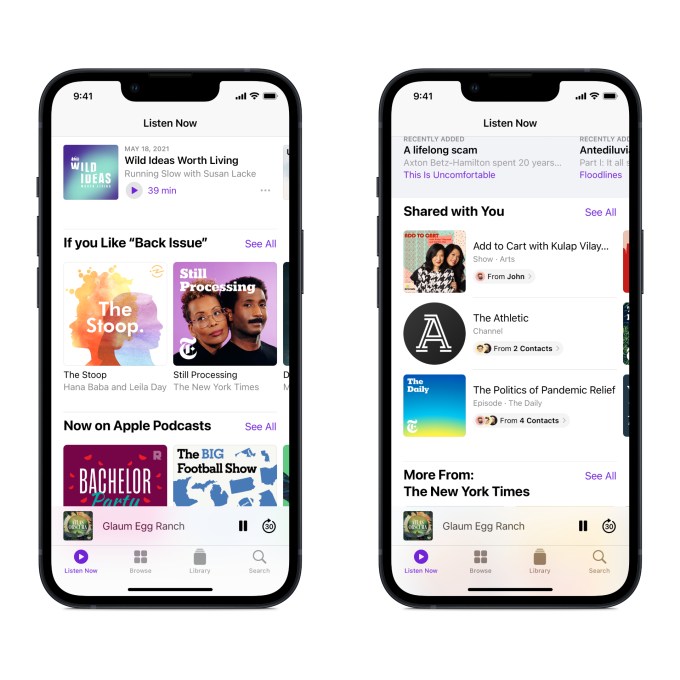
Image Credits: Apple
- TikTok celebrated the return of Broadway shows in New York with a slate of live programming produced by artists, Broadway partners and creators, including performances from Broadway casts; backstage tours showing off costumes, props and practice spaces; costume and makeup tutorials; and tips and tricks from theater professionals; and more.
- Discord started testing YouTube integration just weeks after YouTube cracked down on popular Discord music bots. The feature, called Watch Together, lets Discord members watch YouTube videos (including music videos) together, either via a playlist or by pasting in YouTube links.
- Clubhouse announced Wave, a new way to casually talk with friends on the app. The feature will replace starting private rooms with friends. After you “wave” at people who follow you, anyone who accepts will be able to join your private room as a speaker.
- Clubhouse also hired Chelsea Macdonald as head of entertainment partnerships. She previously worked in similar roles at Community, Red Bull and Instagram.
Gaming
- The Pokémon Company offered a sneak peek at the upcoming Pokémon Trading Card Game Live, which will be available on iOS, Android, PC and Mac devices. In addition to the classic card trading game, the new mobile game will also offer customization options and accessories for your trainer.
- Outfit7’s newly launched My Talking Angela 2, a pet simulation game in its popular Talking Tom franchise, jumped to No. 1 by global downloads for its debut, while Genshin Impact reclaimed the No. 2 spot.
- Pokémon Unite reached the No. 1 spot in game downloads in over 62 Countries on Day 1 (September 21st, 2021) of its release on the iOS App Store.
Health & Fitness
- A report claims disgruntled Noom users said they felt misled by the diet app which had claimed to be an “anti-diet” lifestyle app, but whose plans were really just calorie restriction — like any other diet app. They were also frustrated by its expensive pricing and canned responses sent by burned-out diet coaches.
- Apple’s Research app was updated with the option to transfer study progress data to other devices via iCloud backup.
Productivity
- Google updated its suite of apps for iOS 15, adding support for new features like Focus Mode, Spotlight integrations and iPad widgets.
Government & Policy
- TikTok parent company ByteDance added time limits for kids under 14 for the Chinese version of TikTok, called Douyin. Now, teens under 14 will be able to access Douyin only between the hours of 6 AM and 10 PM and will be limited to 40 minutes per day of usage. The changes follow a broader crackdown by the government on the tech industry, which includes reducing the time kids spend online, which it views as harmful.
- An Indian antitrust probe determined Google abused its dominant position in the country to illegally hurt competitors by reducing device manufacturers’ ability and incentive to sell devices running their own version of Android. It also found that Google’s requirement to pre-install its own apps is in violation of India’s competition law.
Security & Privacy
- Apple improved its Face ID security with iOS 15 to make it more difficult to spoof by using a 3D model for someone’s face.
- Apple patched a new zero-day bug that was exploited in the wild by attackers to hack into iPhones and Macs running older versions of iOS and macOS. Successful exploitation of the bug leads to arbitrary code execution with kernel privileges on compromised devices. Meanwhile, a researcher has published a complaint that Apple has been non-responsive to their reports of other zero-days.
- A report from The Washington Post dug into the shady ways apps were tracking users in the post-IDFA era. For instance, the game Subway Surfers was shown to be sending specific data points to Chartboost, which could then potentially use the data to uniquely identify your iPhone, a technique known as fingerprinting. This continues even if the user has asked the app not to track them.
Funding and M&A
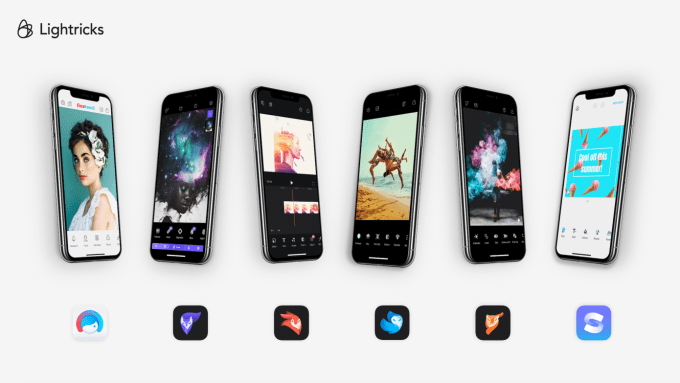
Image Credits: Lightricks
 Facetune maker Lightricks raised $130 million in Series D funding, which included $100 million in primary and $30 million in secondary funding, and values the company at $1.8 billion. The new round was co-led by New York-based VC firm Insight Partners and Hanaco Venture Capital and will be put toward further product growth across its line of editing and creativity apps, as well as acquisitions.
Facetune maker Lightricks raised $130 million in Series D funding, which included $100 million in primary and $30 million in secondary funding, and values the company at $1.8 billion. The new round was co-led by New York-based VC firm Insight Partners and Hanaco Venture Capital and will be put toward further product growth across its line of editing and creativity apps, as well as acquisitions.
 Digital bookkeeping app FloBiz raised $31 million in Series B funding led by Sequoia Capital India, Think Investments and its existing investors Elevation Capital and Beenext. The app has been downloaded more than 5 million times and has a heavier presence in regions like Maharashtra, Delhi NCR, Uttar Pradesh, Gujarat and Tamil Nadu.
Digital bookkeeping app FloBiz raised $31 million in Series B funding led by Sequoia Capital India, Think Investments and its existing investors Elevation Capital and Beenext. The app has been downloaded more than 5 million times and has a heavier presence in regions like Maharashtra, Delhi NCR, Uttar Pradesh, Gujarat and Tamil Nadu.
 London-based grocery delivery app Jiffy raised $28 million in Series A funding led by family-owned investment company Heartland. The app has over 20,000 customers across six London-area delivery zones and promises fresh groceries in 15 minutes.
London-based grocery delivery app Jiffy raised $28 million in Series A funding led by family-owned investment company Heartland. The app has over 20,000 customers across six London-area delivery zones and promises fresh groceries in 15 minutes.
 Seattle fintech Remitly, available on web and mobile, priced its IPO at $43 per share, above the expected range of $38 to $42, valuing the business at $6.9 billion.
Seattle fintech Remitly, available on web and mobile, priced its IPO at $43 per share, above the expected range of $38 to $42, valuing the business at $6.9 billion.
 Pakistan fintech TAG raised $12 million in funding from investors, including New York-based Liberty City Ventures and Canaan Partners, valuing the company at $100 million. Pakistan is the third-largest unbanked market with 100 million users without a bank account, which is driving demand for digital banking services.
Pakistan fintech TAG raised $12 million in funding from investors, including New York-based Liberty City Ventures and Canaan Partners, valuing the company at $100 million. Pakistan is the third-largest unbanked market with 100 million users without a bank account, which is driving demand for digital banking services.
 Livestream shopping app NTWRK raised $50 million from Goldman Sachs and luxury group Kering. NTWRK had previously raised a $10 million Series A, according to Crunchbase data.
Livestream shopping app NTWRK raised $50 million from Goldman Sachs and luxury group Kering. NTWRK had previously raised a $10 million Series A, according to Crunchbase data.
Downloads
Lounge (iOS, Mac, web)
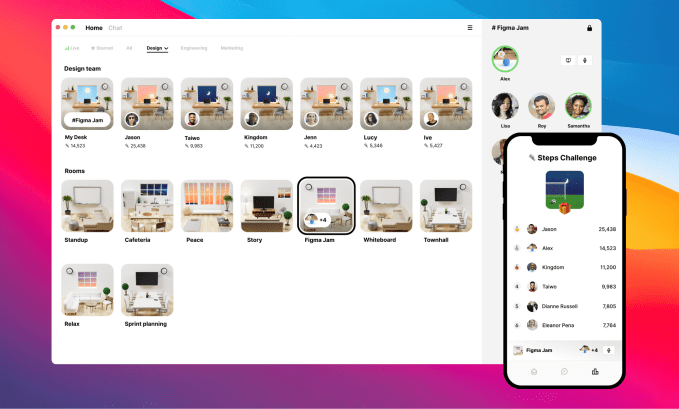
Image Credits: Lounge
Lounge launched a remote work app into open beta which creates a more social environment for smaller, fully remote teams. The app introduces the concept of virtualized “desks” showing the time of day for that individual. It also offers “rooms” that can be organized by the company’s org chart or projects, or the rooms can be virtual representations of physical spaces — like a meeting room for gatherings or company cafeteria, where employees could hang out virtually. Desks and rooms can be locked and made private or they can be unlocked and open. Lounge also adopts features from consumer social apps like photo-sharing and drop-in audio for virtual “desk visits,” and displays employee’s participation in company-wide events, like steps or meditation challenges. Lounge is entering a public beta, which means you’ll have to request access for entry. (Read the details on TechCrunch)
Pokémon Unite (iOS and Android)

Image Credits: The Pokémon Company
The strategic battle game that first arrived on Nintendo Switch this summer has now arrived on mobile. Pokémon Unite offers the same free-to-start multiplayer online battle arena game, with the same maps and monsters as on the Switch. It also introduces Unite Squads for teaming up Trainers, who can create either their own squads or search for existing ones. With the mobile launch, the game supports cross-platform play, allowing users to continue their Switch game on their smartphone, and to play along with others regardless of which device is being used. Both Android and iOS are supported. Following its debut, Pokémon Unite reached the No. 1 spot in game downloads in over 62 Countries on Day 1 (September 21st, 2021) of its release on the iOS App Store, App Annie found. (Read the details on TechCrunch)
Amplosion
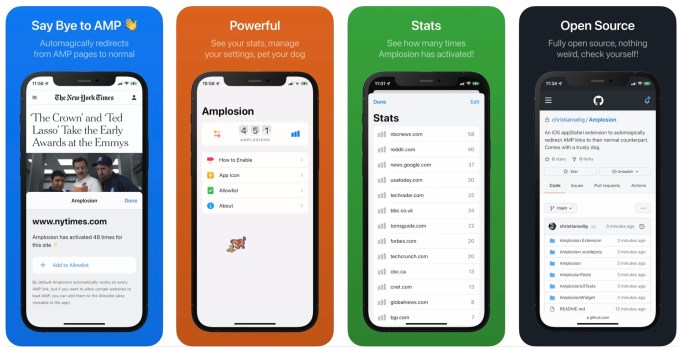
Image Credits: Amplosion
With iOS 15, there are a number of new and improved Safari extensions now available. But one worth checking out is Amplosion, created by Christian Selig, also the developer of popular Reddit client app Apollo. The extension allows you to easily redirect from Google AMP pages to their normal, non-AMP counterparts. If, however, you prefer the AMP versions of some websites, you can add them to an in-app Allowlist. The extension will show you how many pages it’s blocked via an in-app counter and home screen widgets. There’s even an Easter egg in the form of a digital dog named Lord Waffles that lives in the app who has his own widget too. The extension is also fully open source for transparency. The app is a $2.99 download on the App Store.
Tweets
We have to agree, this is waaaay better than “bug fixes:”
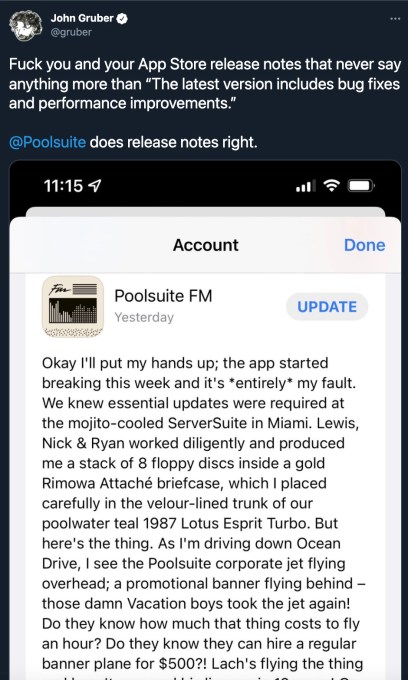
Image Credits: John Gruber on Twitter (opens in a new window)
Yes, it is:
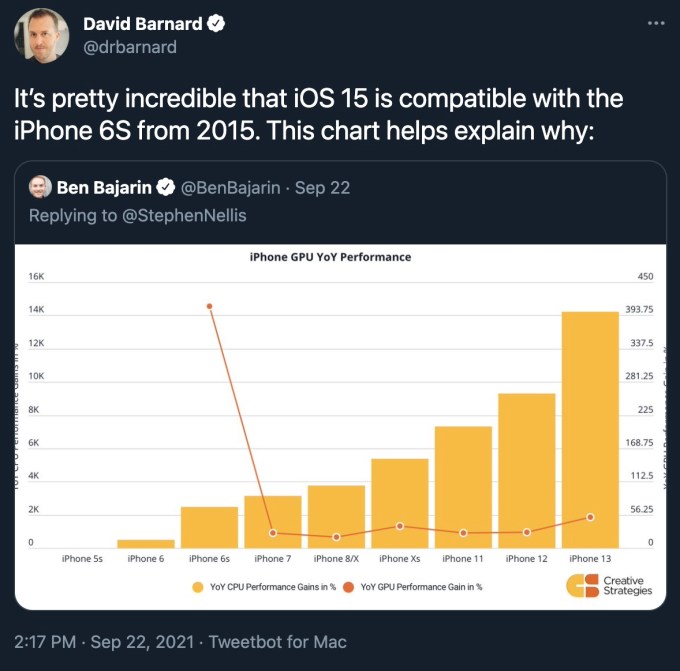
Image Credits: David Barnard on Twitter (opens in a new window)
Powered by WPeMatico






